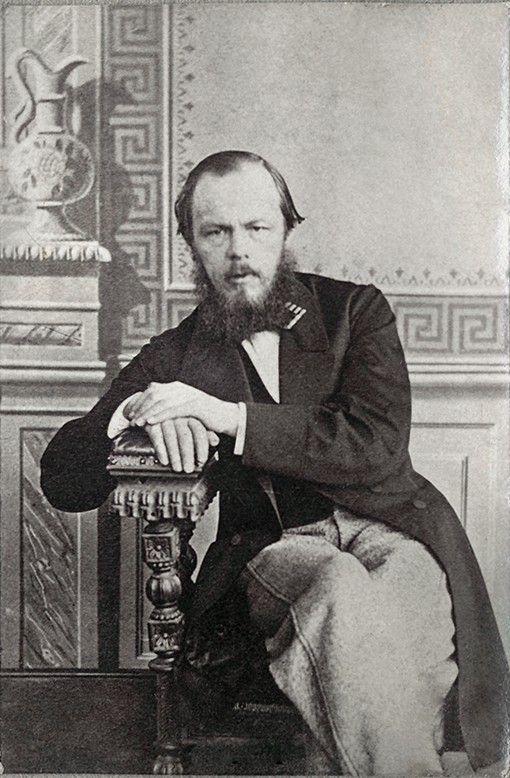|
1864 In Literature
This article contains information about the literary events and publications of 1864. —Opening of ''Our Mutual Friend'' Events *January – Anthony Trollope's ''Can You Forgive Her?'', the first of his Palliser novels, begins to appear in monthly parts in London. Trollope completes it on April 28 and the first volume is published as a book in September by Chapman & Hall. In April, '' The Small House at Allington'' concludes publication in the ''Cornhill Magazine'' and is published in book form by George Smith. *January 2–April 16 – James Payn publishes his most popular story, ''Lost Sir Massingberd'', in ''Chambers's Journal''. He follows it in the magazine (August 6 – December 24) by ''Married Beneath Him''. *February 20 – Painter George Frederic Watts marries his 16-year-old model, the actress Ellen Terry, 30 years his junior, in London. She elopes less than a year later. *March (dated January–February) – The first issue of the Russian literary magazine ''Epoch ... [...More Info...] [...Related Items...] OR: [Wikipedia] [Google] [Baidu] |
Epoch (Russian Magazine)
''Epoch'' () was a Russian literary magazine published in 1864-65 by Fyodor Dostoyevsky and his brother Mikhail. Publication history The first two combined numbers of ''Epoch'', for January and February, 1864, were published in March, 1864, containing the opening chapters of ''Notes from Underground'' by Fyodor Dostoyevsky. ''Notes from Underground'' took up the first four issues of the magazine. His story ''The Crocodile'' was published in the last issue.''Handbook of Russian Literature'', Victor Terras, Yale University Press 1990. ''The Crocodile'', taken as an attack on Nikolay Chernyshevsky, and his article ''Mr -bov and the Question of Art'', criticising the views of Nikolay Dobrolyubov, created considerable controversy between Dostoyevsky and Russian liberals. After Mikhail Dostoyevsky's death in 1864, Fyodor became chief editor. He was forced to discontinue publication of the magazine in February 1865 due to financial problems. Along with Dostoyevsky's works, ''Epoch'' pub ... [...More Info...] [...Related Items...] OR: [Wikipedia] [Google] [Baidu] |
Deutsche Shakespeare-Gesellschaft
The Deutsche Shakespeare-Gesellschaft (German Shakespeare Society) was founded on the occasion of the 300th birthday of William Shakespeare on 23 April 1864. It was the first scientific and cultural association of its type in Weimar, and is one of the oldest functioning literary societies in the world. References Organisations based in Thuringia Weimar 1864 establishments in the German Confederation Organizations established in 1864 {{Germany-org-stub ... [...More Info...] [...Related Items...] OR: [Wikipedia] [Google] [Baidu] |
April 23
Events Pre-1600 * 215 BC – A temple is built on the Capitoline Hill dedicated to Venus Erycina to commemorate the Roman defeat at Lake Trasimene. *599 – Maya king Uneh Chan of Calakmul attacks rival city-state Palenque in southern Mexico, defeating queen Yohl Ik'nal and sacking the city. * 711 – Dagobert III succeeds his father King Childebert III as King of the Franks. * 1014 – Battle of Clontarf: High King of Ireland Brian Boru defeats Viking invaders, but is killed in battle. * 1016 – Edmund Ironside succeeds his father Æthelred the Unready as King of England. * 1343 – St. George's Night Uprising commences in the Duchy of Estonia. *1348 – The founding of the Order of the Garter by King Edward III is announced on St. George's Day. * 1500 – Portuguese explorer Pedro Alvarez Cabral reaches new coastline (Brazil). * 1516 – The Munich '' Reinheitsgebot'' (regarding the ingredients of beer) takes effect in all o ... [...More Info...] [...Related Items...] OR: [Wikipedia] [Google] [Baidu] |
Nathaniel Hawthorne
Nathaniel Hawthorne (né Hathorne; July 4, 1804 – May 19, 1864) was an American novelist and short story writer. His works often focus on history, morality, and religion. He was born in 1804 in Salem, Massachusetts, from a family long associated with that town. Hawthorne entered Bowdoin College in 1821, was elected to Phi Beta Kappa in 1824, and graduated in 1825. He published his first work in 1828, the novel ''Fanshawe (novel), Fanshawe''; he later tried to suppress it, feeling that it was not equal to the standard of his later work. He published several short stories in periodicals, which he collected in 1837 as ''Twice-Told Tales''. The following year, he became engaged to Sophia Hawthorne, Sophia Peabody. He worked at the Boston Custom House and joined Brook Farm, a Transcendentalism, transcendentalist community, before marrying Peabody in 1842. The couple moved to The Old Manse in Concord, Massachusetts, later moving to Salem, the Berkshires, then to The Wayside in Concord ... [...More Info...] [...Related Items...] OR: [Wikipedia] [Google] [Baidu] |
Philadelphia
Philadelphia ( ), colloquially referred to as Philly, is the List of municipalities in Pennsylvania, most populous city in the U.S. state of Pennsylvania and the List of United States cities by population, sixth-most populous city in the United States, with a population of 1,603,797 in the 2020 United States census, 2020 census. The city is the urban core of the Philadelphia metropolitan area (sometimes called the Delaware Valley), the nation's Metropolitan statistical area, seventh-largest metropolitan area and ninth-largest combined statistical area with 6.245 million residents and 7.379 million residents, respectively. Philadelphia was founded in 1682 by William Penn, an English Americans, English Quakers, Quaker and advocate of Freedom of religion, religious freedom, and served as the capital of the Colonial history of the United States, colonial era Province of Pennsylvania. It then played a historic and vital role during the American Revolution and American Revolutionary ... [...More Info...] [...Related Items...] OR: [Wikipedia] [Google] [Baidu] |
Pneumonia
Pneumonia is an Inflammation, inflammatory condition of the lung primarily affecting the small air sacs known as Pulmonary alveolus, alveoli. Symptoms typically include some combination of Cough#Classification, productive or dry cough, chest pain, fever, and Shortness of breath, difficulty breathing. The severity of the condition is variable. Pneumonia is usually caused by infection with viruses or bacteria, and less commonly by other microorganisms. Identifying the responsible pathogen can be difficult. Diagnosis is often based on symptoms and physical examination. Chest X-rays, blood tests, and Microbiological culture, culture of the sputum may help confirm the diagnosis. The disease may be classified by where it was acquired, such as community- or hospital-acquired or healthcare-associated pneumonia. Risk factors for pneumonia include cystic fibrosis, chronic obstructive pulmonary disease (COPD), sickle cell disease, asthma, diabetes, heart failure, a history of smoking, ... [...More Info...] [...Related Items...] OR: [Wikipedia] [Google] [Baidu] |
William Ticknor
William Davis Ticknor I (August 6, 1810 – April 10, 1864) was an American publisher in Boston, Massachusetts, USA, and a founder of the publishing house Ticknor and Fields. Life and work William Davis Ticknor was born on August 6, 1810, on the outskirts of Lebanon, New Hampshire, the oldest boy of nine brothers and sisters. His parents, William and Betsey (Ellis) Ticknor, were prosperous farmers. His cousin was the famous writer and historian George Ticknor, and his granddaughter Caroline Ticknor was a biographer and short story writer. As a boy, Ticknor worked on the family farm during the summers and attended the district school during the winters. In 1827 at age seventeen he left home and went to Boston. He was first employed in the brokerage house of his uncle Benjamin. When his uncle died a few years later he was offered a position at the Columbian Bank, a position he held for a year or two. In 1832 he went into partnership with John Allen forming the publishing house o ... [...More Info...] [...Related Items...] OR: [Wikipedia] [Google] [Baidu] |
April 10
Events Pre-1600 * 428 – Nestorius becomes the Patriarch of Constantinople. * 837 – Halley's Comet makes its closest approach to Earth at a distance equal to 0.0342 AU (5.1 million kilometres/3.2 million miles). * 1407 – Deshin Shekpa, 5th Karmapa Lama visits the Ming dynasty capital at Nanjing and is awarded the title "Great Treasure Prince of Dharma". * 1500 – Ludovico Sforza is captured by Swiss troops at Novara and is handed over to the French. * 1545 – The settlement of Villa Imperial de Carlos V (now the city of Potosí) in Bolivia is founded after the discovery of huge silver deposits in the area. 1601–1900 * 1606 – The Virginia Company of London is established by royal charter by James I of England with the purpose of establishing colonial settlements in North America. * 1710 – The Statute of Anne, the first law regulating copyright, comes into force in Great Britain. * 1717 – Robert Walpole resigns f ... [...More Info...] [...Related Items...] OR: [Wikipedia] [Google] [Baidu] |
Notes From Underground
''Notes from Underground'' ( pre-reform Russian: ; post-reform Russian: ; also translated as ''Notes from the Underground'' or ''Letters from the Underworld'') is a novella by Fyodor Dostoevsky first published in the journal ''Epoch'' in 1864. It is a first-person narrative in the form of a "confession". The work was originally announced by Dostoevsky in ''Epoch'' under the title "A Confession". The novella presents itself as an excerpt from the memoirs of a bitter, isolated, unnamed narrator (generally referred to by critics as the Underground Man), who is a retired civil servant living in St. Petersburg. Although the first part of the novella has the form of a monologue, the narrator's form of address to his reader is acutely dialogized. According to Mikhail Bakhtin, in the Underground Man's confession "there is literally not a single monologically firm, undissociated word". The Underground Man's every word anticipates the words of an other, with whom he enters into an obses ... [...More Info...] [...Related Items...] OR: [Wikipedia] [Google] [Baidu] |
Novella
A novella is a narrative prose fiction whose length is shorter than most novels, but longer than most novelettes and short stories. The English word ''novella'' derives from the Italian meaning a short story related to true (or apparently so) facts. Definition The Italian term is a feminine of ''novello'', which means ''new'', similarly to the English word ''news''. Merriam-Webster defines a novella as "a work of fiction intermediate in length and complexity between a short story and a novel". There is disagreement regarding the number of pages or words necessary for a story to be considered a novella, a short story or a novel. The Science Fiction and Fantasy Writers Association defines a novella's word count to be between 17,500 and 40,000 words; at 250 words per page, this equates to 70 to 160 pages. See below for definitions used by other organisations. History The novella as a literary genre began developing in the Italian literature of the early Renaissance, princip ... [...More Info...] [...Related Items...] OR: [Wikipedia] [Google] [Baidu] |
Existentialism
Existentialism is a family of philosophical views and inquiry that explore the human individual's struggle to lead an authentic life despite the apparent absurdity or incomprehensibility of existence. In examining meaning, purpose, and value, existentialist thought often includes concepts such as existential crises, angst, courage, and freedom. Existentialism is associated with several 19th- and 20th-century European philosophers who shared an emphasis on the human subject, despite often profound differences in thought. Among the 19th-century figures now associated with existentialism are philosophers Søren Kierkegaard and Friedrich Nietzsche, as well as novelist Fyodor Dostoevsky, all of whom critiqued rationalism and concerned themselves with the problem of meaning. The word ''existentialism'', however, was not coined until the mid 20th century, during which it became most associated with contemporaneous philosophers Jean-Paul Sartre, Martin Heidegger, Simone de Beau ... [...More Info...] [...Related Items...] OR: [Wikipedia] [Google] [Baidu] |






